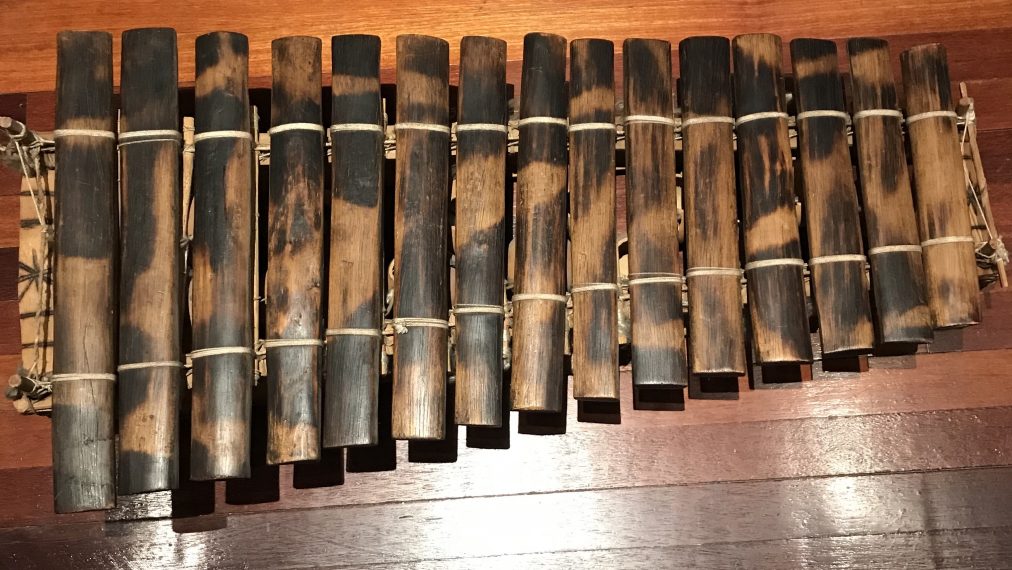Africa has been calling my spirit since adolescence growing up in Long Island, New York. As a precocious teenager, I acquired tremendous ebullience with a desire to know more about the land of my ancestors.
Serendipity played a part when I went to a jam session in London, England during the early 1980’s. I was there to perform with NEA Jazz Master Dr. Randy Weston for the International Book Fair organized by John La Rose and Sarah White. One night I decided to go to a jazz club, which hosted a jam session and on piano was none other than South African pianist Chris McGregor (he was exiled in protest of Apartheid). Chris had a large ensemble called The Brotherhood Of Breath, comprised mostly of British musicians with additional players from South Africa and Ghana. While I was in the middle of an alto sax solo, I heard a voice shout from the piano bench “Can you go to Mozambique next week?”
I was residing in Paris, France and left the following week for my maiden voyage to East Africa: Mozambique. We performed three concerts to very enthusiastic audiences and it was absolutely a splendiferous experience. There were four Americans in the band: myself, trumpeter Kamal Abdul Alim, baritone saxophonist Bruce Grant, and drummer Barry Altschul. On bass from Panama was Santi Debriano. During my departure at the airport in Maputo, I attempted to check my baggage when a hand came from behind me and took my luggage off the scale. His name was Mario and he was a film producer from Brazil. He explained his acumen for jazz as he heard the Brotherhood of Breath the night before. He was fascinated with my musicianship and offered me to stay two additional weeks to compose music for his documentary “The Black Women of Maputo”
My plans suddenly changed and my stay in Mozambique was extended two weeks. Needless to say it was a marvelous experience. In addition to composing music for Mario’s documentary, my extension afforded me the opportunity to hear and experience the extremely multifarious traditional music of Mozambique, entrenched in the fecundity of the African aesthetic.
I heard ensembles playing the Chitata (see photo), an idiophone from the family of hand-held finger pianos that exist in other parts of Africa: sanza, lukembi, mbira, kalimba. I also experienced performances from the ancestor to our modern day xylophone/marimba/vibraphone: Timbila and Mbila (see photo). These instruments are also from the idiophone family and their orchestras are quite varied. They are similar to the balaphon (see photo) you find in West Africa and come in a multitude of sizes, including some quite large that are played over large empty oil barrels. Lastly I also heard an ensemble of Nyanga the panpipe wooden flutes (see photo). These are from the areophone family of instruments and you find extensions of these flutes in Ecuador. The African drum is also quite prevalent in Mozambique with a vast variety of shapes and sizes.
 |
 |
 |
 |
While in Maputo, I was also quite fortunate to meet one of Mozambique’s most renowned artists: the painter Malangatana Ngwenya. We became great friends immediately and his artistic expressions are extremely prolific. I became obeisant in his presence, realizing he also drew the artwork on some of the LP covers for legendary trumpeter Hugh Masekela. Master Malangatana’s drawings are also featured in a book on the traditional music of Mozamboque, as well as many museums, buildings, and galleries throughout the country.
Mr. Ngwenya later came to Paris, France with his wife for a visit and I offered him my studio apartment during his stay. He was so appreciative that he drew an exquisite picture, which he signed and dedicated to my mother Lois Marie Rhynie (see photo), as she held a Master’s Degree in Art History. Sadly to say Master Malangatana joined the ancestors in 2011.
 |
 |
Stay tuned for Part 2 of Motherland Connections and Reflections.
God Bless—T.K. Blue




